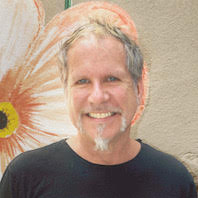Ozzy Osbourne rates his guitarists and reflects on the highs and lows of Black Sabbath
The Prince of Darkness speaks candidly about bandmates past and present – from Randy Rhoads to Zakk Wylde – and what he looks for in a guitarist, in this classic interview from the GW archives
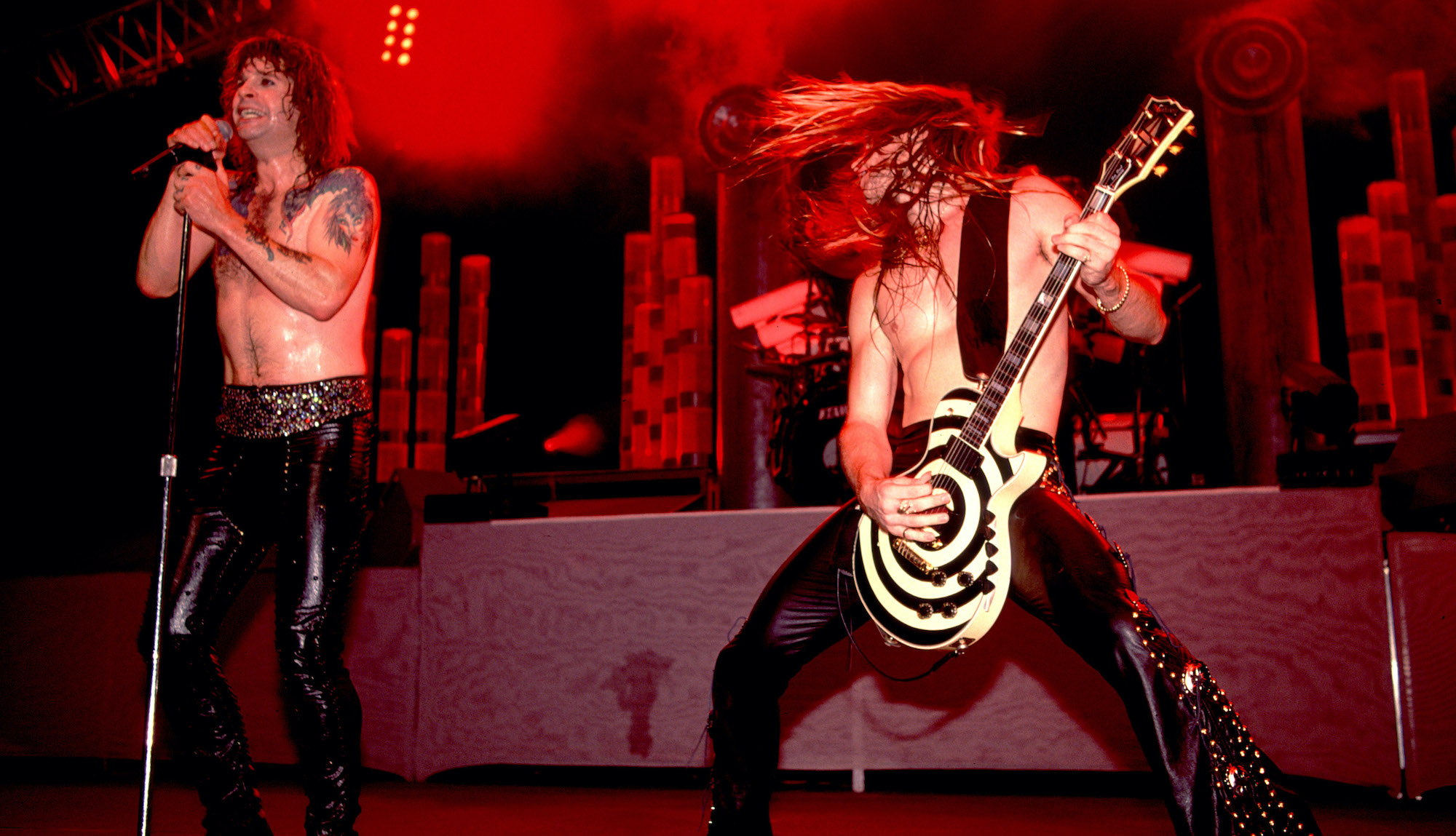
The following interview is taken from Guitar World's June 1990 issue. The original headline was "The Good, The Bad & The Ozzy: Or How to Become a Heavy Metal Guitar Hero in One E-Z Lesson."
If only half the rumors about him are true, Ozzy Osbourne should be dead. Yet, after 21 years of twisted public behavior, the man who brought you songs like Paranoid, Bark at the Moon and Children of the Grave looks incredibly healthy and ready to take on the world.
Ozzy recently celebrated more than 20 years in the business by polishing off a live greatest hits EP, Just Say Ozzy, and is currently at work on his next studio metal masterpiece.
In the conversation that follows, Ozzy thoughtfully recalls what made each of his great guitarists special, and elaborates his criteria for choosing a guitarist, his audition process, and his theory on why it's good to be bad.
Let’s start by looking at your past guitarists. How did you find Randy Rhoads?
"Thinking back, it was quite extraordinary. I had been in Black Sabbath since high school, and suddenly Tony Iommi fired me from the band. It was a shock because Sabbath had always been there. I was out of my brain on drugs and alcohol and I was stuck in the position of getting a band together. I had never auditioned anyone before and I was petrified.
"The auditioning process was so embarrassing. How do you tell someone that they’re not what you’re looking for? Back then, everyone was trying to clone Jimi Hendrix. I heard nothing but Purple Haze and Foxy Lady riffs. One guy even hooked up several tape recorders and echo units so he could play both the lead and rhythms to Hendrix tunes simultaneously. It was a nightmare!
Get The Pick Newsletter
All the latest guitar news, interviews, lessons, reviews, deals and more, direct to your inbox!
"I had almost given up when somebody told Sharon [Osbourne, Ozzy’s wife and personal manager] about this great guitar player in town named Randy Rhoads. Shortly afterward, Randy came over to my Los Angeles apartment. He was so frail, tiny and effeminate that I thought, 'Oh no, oh hell.' But out of politeness, I invited him to play the next day.
"Unfortunately, when he turned up, I was stoned out of my mind. I mean, I was on another planet. Some guy woke me up and said, 'He’s here!' I looked up and Randy started playing from this tiny amp. Even in my semiconsciousness he blew my mind. I told him to come by the next day and that he had the gig.
"The next day I told someone I dreamed that I hired a guitar player. They told me I didn’t dream it and that he was coming that day. I thought, 'Oh god, what have I done? I hope he can play!'"
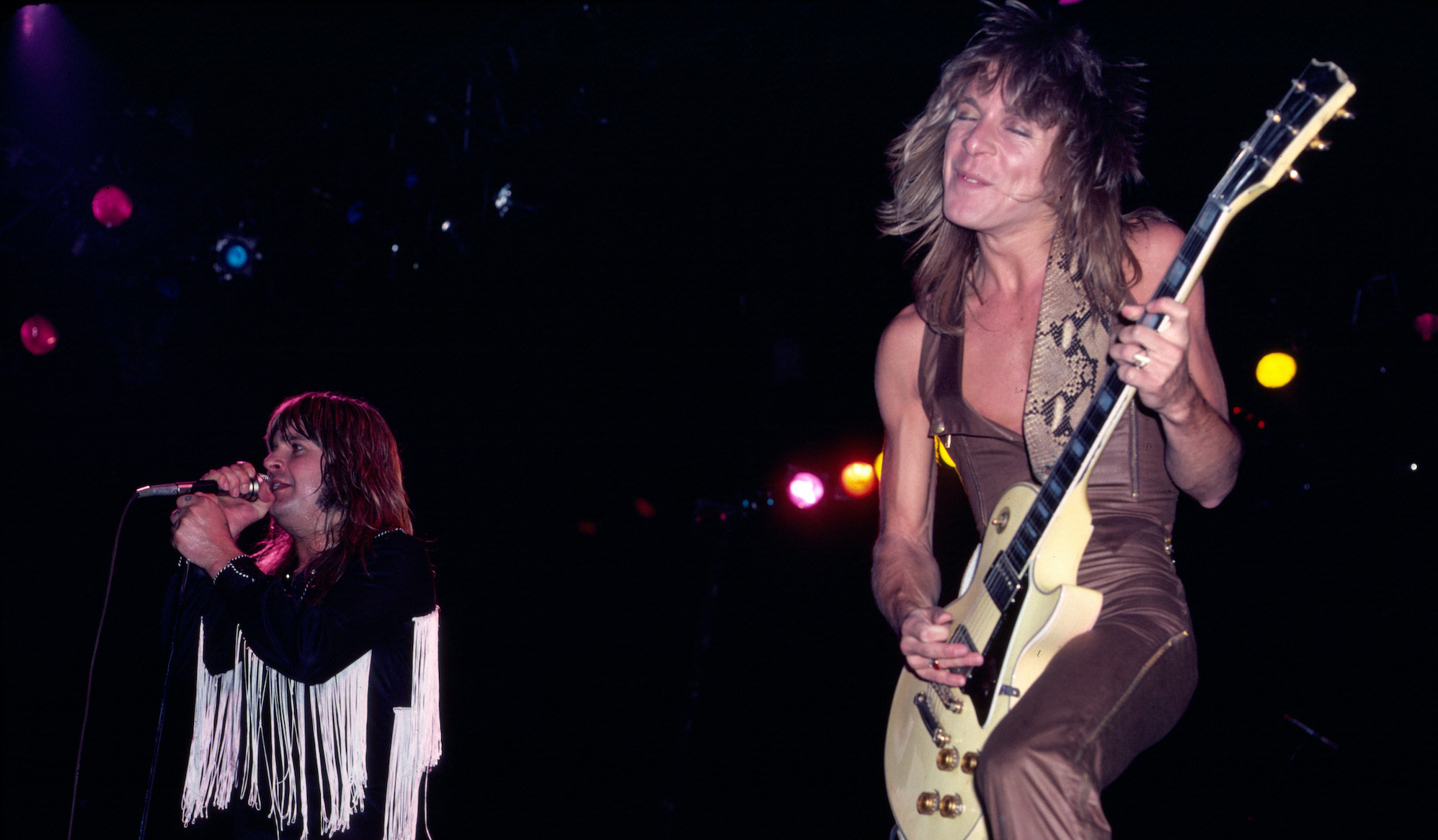
How do you know when a guitarist is right or wrong?
"It’s like shopping for a new suit: there may be a whole rack of blue suits, but only one will grab you. There’s no ritual, there’s no formula. I’ve just been lucky that everybody’s liked my taste in guitar players."
What were Randy’s weaknesses as a player? Was there any aspect you had to help him with?
"He didn’t really have any weaknesses. I was the one that needed work. I had just come from Sabbath and Tony Iommi was a bit of a tyrant. His attitude was that I was the singer, I was allocated a space, and if I couldn’t come up with anything then I was screwed.
"Whereas Randy would work with me. Randy had patience because he was a guitar teacher. It was potentially a very frustrating situation for him because I couldn’t play a musical instrument. But he was always supportive and would say things like, 'Try bending a note here,' or 'Try this key.'
"It was a bit like going to music school. Randy was very instrumental in bringing me out of me. The first two Ozzy albums are by far the greatest things I’ve ever done. He was too good to last."
You and Randy had chemistry.
"Yeah, and now I think it’s gone, but you never know. I was never sure whether my work with Sabbath was any good. I used to think it was all too ordinary, but it seems to have stood the test of time. You never know what you got till it’s gone."
You must have had more confidence when you found Jake E. Lee.
"Not really. I knew a guitarist had to look good and have a good attitude, but other than that… Randy was the exception. He was from somewhere else.
"Randy came to me one day and said, 'I’ve had enough of this rock and roll stuff, I want to get a degree in music from UCLA.' I said to him, 'Why don’t you wait a few years and get some money and success behind you. You can always get a degree when you’re 90, if you want.' But he wanted to study right then and there.
"He started spending hours practicing and writing out his own formulas – diads or niads or whatever you call them. Day in and day out, whatever spare time he had was spent plucking on his flamenco guitar. He was a musician in the true sense. The instrument was an extension of his personality.
Randy and Eddie Van Halen were at the winning post, and everyone else is a close second
"When we were recording Diary of a Madman he would disappear into the studio for days. I’d ask him what he was doing and he would say, 'I’m working on this solo and I still can’t get it.' Finally, it would come to him and he would call me and say, 'Listen to this.' It would always tear my head off.
"That’s the difference between guitar players: there are guys who’ll go wingly-wangly up and down the fretboard, and some have emotions and others don’t. Randy and Eddie Van Halen were at the winning post, and everyone else is a close second.
"I mean, this Yngwie Malmsteen guy must have the capability to do some amazing things, but it’s too cold; it’s too much for the mind to take in. And watching Steve Vai is like watching a good mechanic strip down an engine in three seconds and rebuild it. He makes things run perfectly, but there’s no nice little errors that make things sound human."
Okay, but what about Jake?
"Well, Jake was fine for the first three days; then he wanted to take over. Randy wasn’t like that; he was one of the cool guys. I wouldn’t say Jake and I got along, but I wouldn’t say we didn’t get along. But in the last few years he became very reserved and it was hard to communicate with him.
"We lived together in a house in Beverly Hills and we never spoke! It wasn’t because we didn’t like each other. We just didn’t have anything to say.
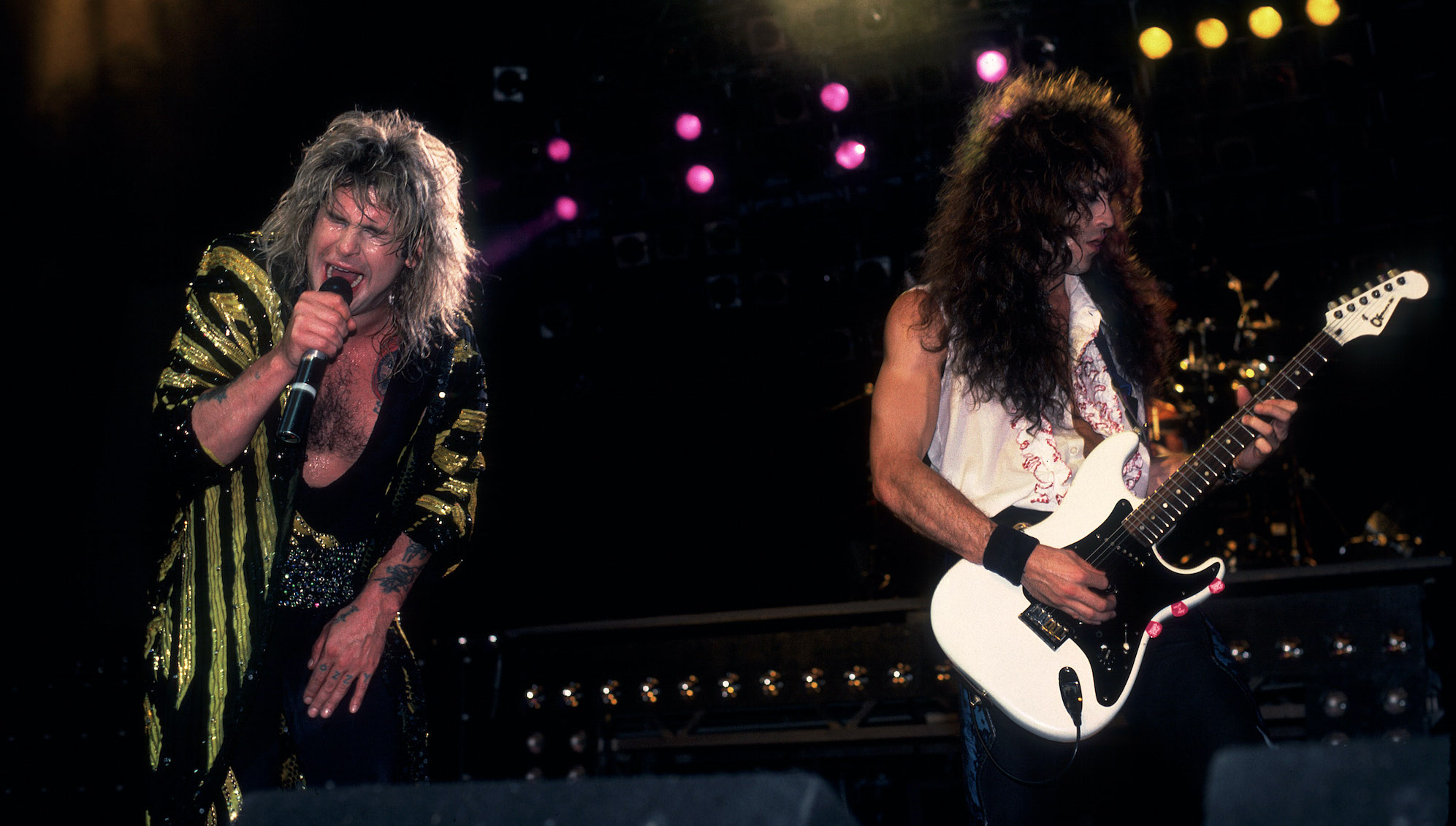
"It was similar to the relationship I had with Tony Iommi. We’d get together to rehearse, write a mediocre song and then go our own way. It’s not the relationship I wanted with Jake, but a festering cancer set in. I wouldn’t have it. If I ask, 'What do you think of that?' I want a reaction. If it’s negative we’ll try something else, that’s not a problem. But Jake would shrug his shoulders, raise an eyebrow and walk away.
"The word 'band' means a band of men – an army, a platoon, a unit. A chain is only as strong as its weakest link. If there is a communication breakdown – hey, that’s a great name for a song – you’ve got no unit.
"To be fair, Jake did have a fantastic presence and he was a great guitar player."
What made Zakk stand out?
"This is a bizarre story, but it’s the God’s honest truth. It was a bad period for me because I was sick of auditioning people – drummers, bass players, keyboard players, you name it. Now it was time to audition yet another guitar player. The spark had gone out of it, probably due to my various battles with drugs and alcohol. I had a lot of personal hang-ups about a lot of things, plus I was tired.
There were all these Eddie Van Halen clones on steroids. They played like Van Halen while standing on their heads and hopping on one leg. One guy even played like Eddie while eating a fucking sword!
"I asked the guys who were in the band at the time to put out the word that I needed somebody and to have people send me résumés. I auditioned about 50 guys. Some of them were hilarious. I asked one guy to play something in a specific key. He said, 'I think it would be better in another key.' I said, 'No it wouldn’t. Just play it in the key it was written in.' He protested again and I just thought, What the hell am I doing here? I’m jet-lagged to the max, arguing with some idiot guitar player.
"Then there were all these Eddie Van Halen clones on steroids. They played like Van Halen while standing on their heads and hopping on one leg. One guy even played like Eddie while eating a fucking sword!
"One morning I was confronted with a mound of tapes and I remember picking one up out of thousands and saying, 'Look here, a Randy Rhoads clone.' It was a picture of some guy with long blonde hair playing a Les Paul Custom. I couldn’t even bring myself to listen to his tape. I tossed it back in the pile and forgot about it.
"Then about six months later, my drummer, Randy Castillo, walks in and says, 'I found this great guitarist from New Jersey, and his name is Zakk.' I walked into the audition and I knew I had seen him before, but I couldn’t remember where. He plugs in and plays my whole catalog, note for note.
"I then asked him to play something of his own and he played some acoustic stuff and some classical stuff. He had a bounce and a spark about him. Then I realized where I saw Zakk before: he was the Randy Rhoads clone in the photo, the one tape I had picked out of thousands. Only it turned out that he wasn’t a Randy clone at all. Randy would’ve looked like an ant next to Zakk.
"There were lots of benefits to choosing Zakk. He had followed my career and he knew my songs better than I knew them myself. We knew it wouldn’t be hard to break him in."
Now that you’ve worked with Zakk for a while, what do you think his strengths are?
"That’s a difficult question. He’s still very young and still very impressionable. I think he’s still finding his own feet."
What are the drawbacks to working with young players?
"I keep thinking I would love to work on a project with musicians my own age. I guess I’d better do it quick because with each passing year the number of people my age gets smaller. I’m starting to feel like a daddy or something. I don’t want to be the wild man of rock and roll for too much longer."
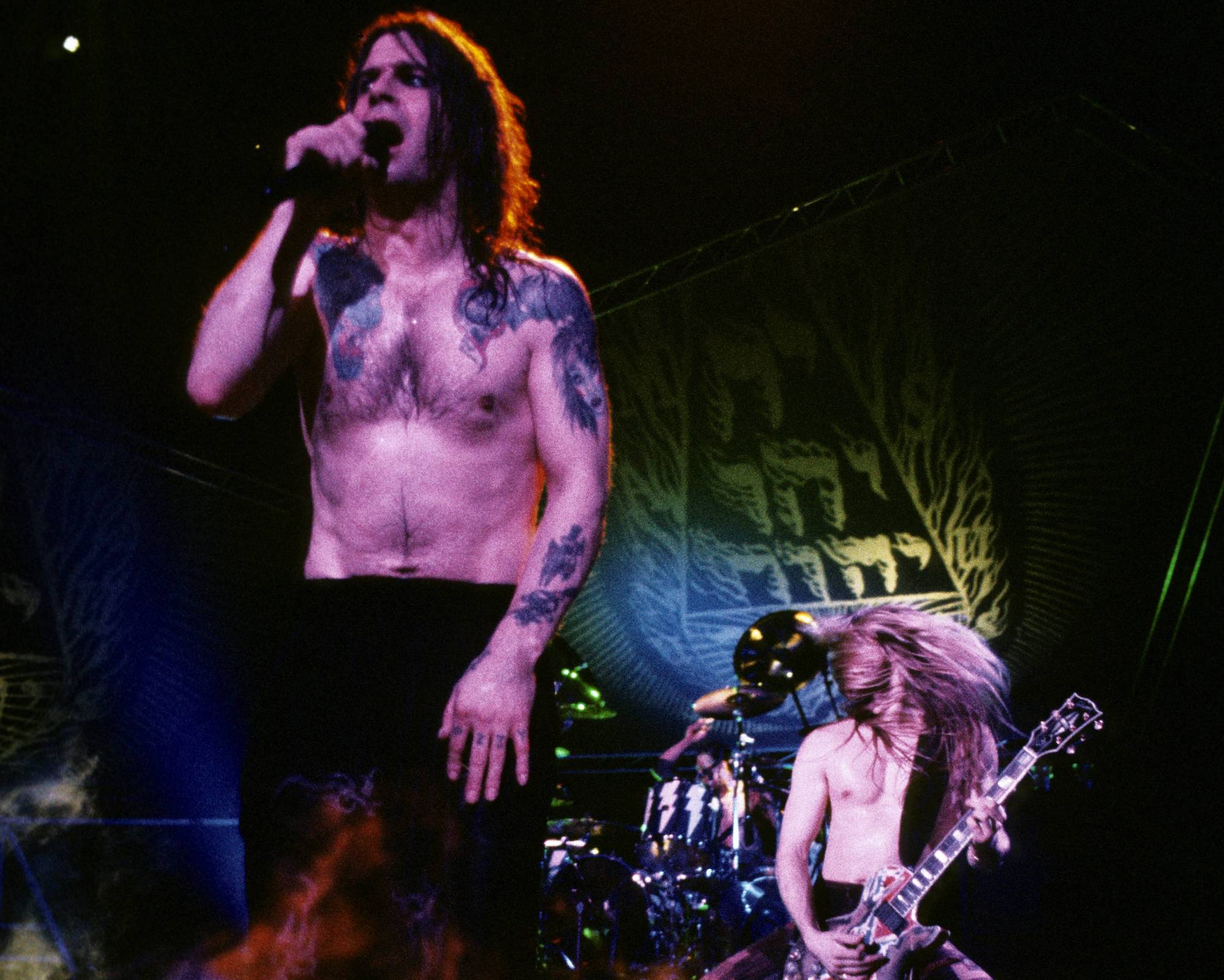
You could go the David Coverdale route and hire established guitarists, yet you seem to prefer to discover new talent.
"I want someone that’s hungry. I want someone who wants to go out and kick Eddie Van Halen’s ass. I look for that hunger, that ability to succeed."
What was your most bizarre auditioning experience?
"There’s been thousands of them. One guy did a break dance and spun around on his back on the floor while playing wild guitar licks. There were lots of guys who were great but horrible to look at. I mean, there’s always cosmetic surgery, I suppose. Besides being a great guitarist you’ve got to look the part; you’ve got to be able to attract people. Some of the people I’ve auditioned looked like they should’ve been in a sideshow at the circus.
"I’m never worried about finding players, though. If Zakk walked through the door and said, 'I’m leaving,' I’d say, 'God bless you, goodbye.' There’s an abundance of guitar players jamming in their rooms who are brilliant. In fact, I often wonder why they aren’t out doing something.
You’ve got to have an interesting frontman.
"Yeah, you’re right. There is a lack of good frontmen. Axl Rose is the best I’ve seen in many years. I appeared in a movie called The Decline and Fall of Western Civilization, Part II: The Heavy Metal Years, along with a number of bands. I couldn’t believe the horseshit in that film. It seemed that all anyone talked about was partying and getting laid. What about being in a band and playing music?

"Guns N’ Roses is a great name for a band and they seem committed. I’m not trying to be trendy, but that’s what I think. I think they’ve got a great image, as well. Everybody likes the bad guys.
"Take that band Stryper – that’s the highest form of hypocrisy. They wear the same clothes as me, but they carry crucifixes and Bibles. The difference is, nobody likes to hear a good person. I discovered that many years ago."
What’s your assessment of Tony Iommi? He’s left-handed, his fingers are chopped off, he had to detune his guitar three steps, yet he ended up defining a genre.
"In the beginning he was brilliant – he was the master of heavy metal riffs. He was very clever. But I never really knew Tony; we rarely spoke. He was the god-almighty figure in the band and verged on being a bully. I must have learned something from him, though, because when I left I did pretty well on my own. I still keep in touch with the rest of the band, but I don’t speak with Tony because we never talked when I was in the band.
"He’s very intimidating. To be honest, toward the end his playing bored me, because everyone else was progressing and he wasn’t. That’s probably not fair, given his problems with his fingers. I should be grateful for Black Sabbath. But Tony needs to stop writing about devils and bullshit – it’s already been done.
"Ultimately, I think it was good that I moved on when I did. It was starting to get frustrating, because Tony would get a good headbanger going, then he’d start doing all this weird stuff. It started getting too complicated."
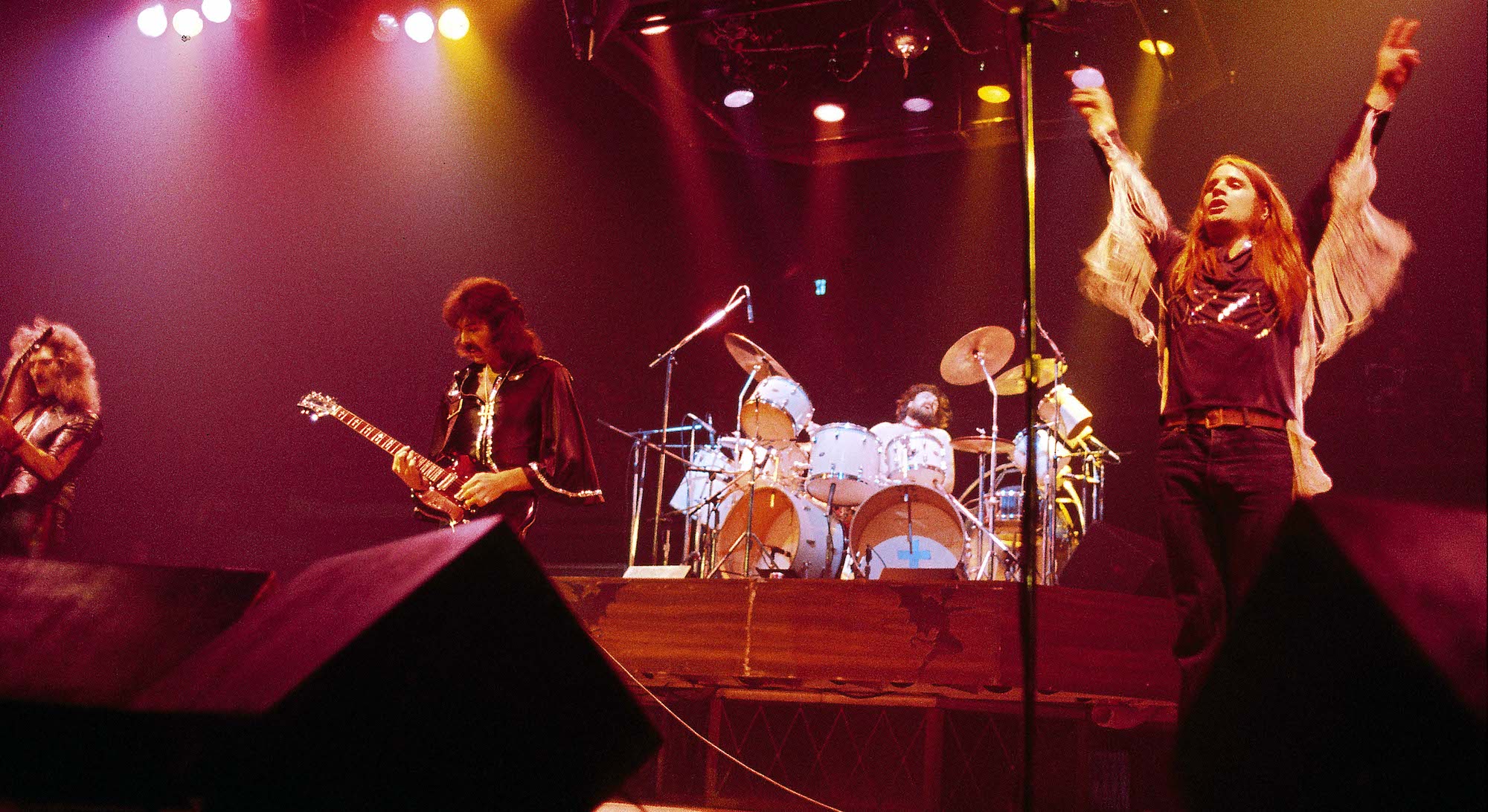
Except for Shot in the Dark, your live versions of songs stay pretty close to the originals.
"I’ve seen bands who’ve played endings that are longer than the actual song. I always think, Jeez, c’mon! End it already! I’m old-fashioned in the sense that I like the song to sound like the song. I don’t even like live records; I haven’t really acknowledged the release of Just Say Ozzy. Those songs have already been done. Why do them again?"
Aren’t you ever tempted to rework songs to keep them from getting boring?
"No. If I don’t get off on something, I just drop the song from the set. I’ve got enough tunes in the pipeline."
Millions of bands have tried to cop your formula, yet you endure. What is it about your songs that make them stand the test of time?
"God only knows. I was touring with Metallica a couple of years ago and I went backstage to talk with them. They were hanging out, and all of them were staring at me in a very strange manner. Then a couple weeks later I wandered backstage and they were playing Sabbath tunes.
"I asked ’em if they were trying to give me a hard time. And they said 'No, we’re mad for Sabbath.' They were big fans. I thought, What, Sabbath-mad? It’s incredible to me that people still like the music.
"Sabbath was a band that used to pull into an arena, play and never see a fan on the street. We came, we saw, we conquered and went home. I’d see an occasional acid freak wandering around San Francisco like a zombie mumbling 'Black Sabbath.' But we had no real contact with the fans, and we had no idea of the extent of our impact.
Of your albums, which are your favorites?
"Black Sabbath, Paranoid, Sabbath Bloody Sabbath, Blizzard of Ozz and Diary of a Madman. I relate more to the period of time than to the actual album. If I was having fun, then it was a good album. If I wasn’t, then the album was crap. We had a blast making Blizzard and Diary – screwed-up and always laughing.
"Those first two albums were my revenge because I was fired from Sabbath. I thought, Man, I’ll show them what it’s about! I always come out with my best when my back’s against the wall. It’s always when the luxury and financial rewards come piling in that I begin to lose it."
What would make you hungry again?
"I am, in a way. This is the first record I’ve ever done sober. I’m five months sober, and it’s very difficult. I don’t know whether it’s good or not. I’m writing mellower songs. Not to say the album will be mellow. Zakk will make sure it’s not. He’s crazy. In fact, he reminds me of me.
"During rehearsal, I’ll sit down with the road crew and have a can of Coke. Geezer [Butler] will walk in and quietly join us, then Randy [Castillo, drums]. But Zakk, you hear him from a mile away, screaming or whatever. He’s like a circus coming to town. Geezer cowers when he hears Zakk coming. There are so many cool-guy guitar players with their sunglasses and all that, but Zakk is one of the boys.
"He’s a real shitkicker. He always says hi to people and takes the time to talk to the fans – he’s always on. One of the key things about him is that he’s always got some time for the people. That’s a big asset. When people find success, they tend to get big heads and 18 bodyguards. They forget that without the fans they wouldn’t have a flash limousine and the money to pay for the bodyguards.
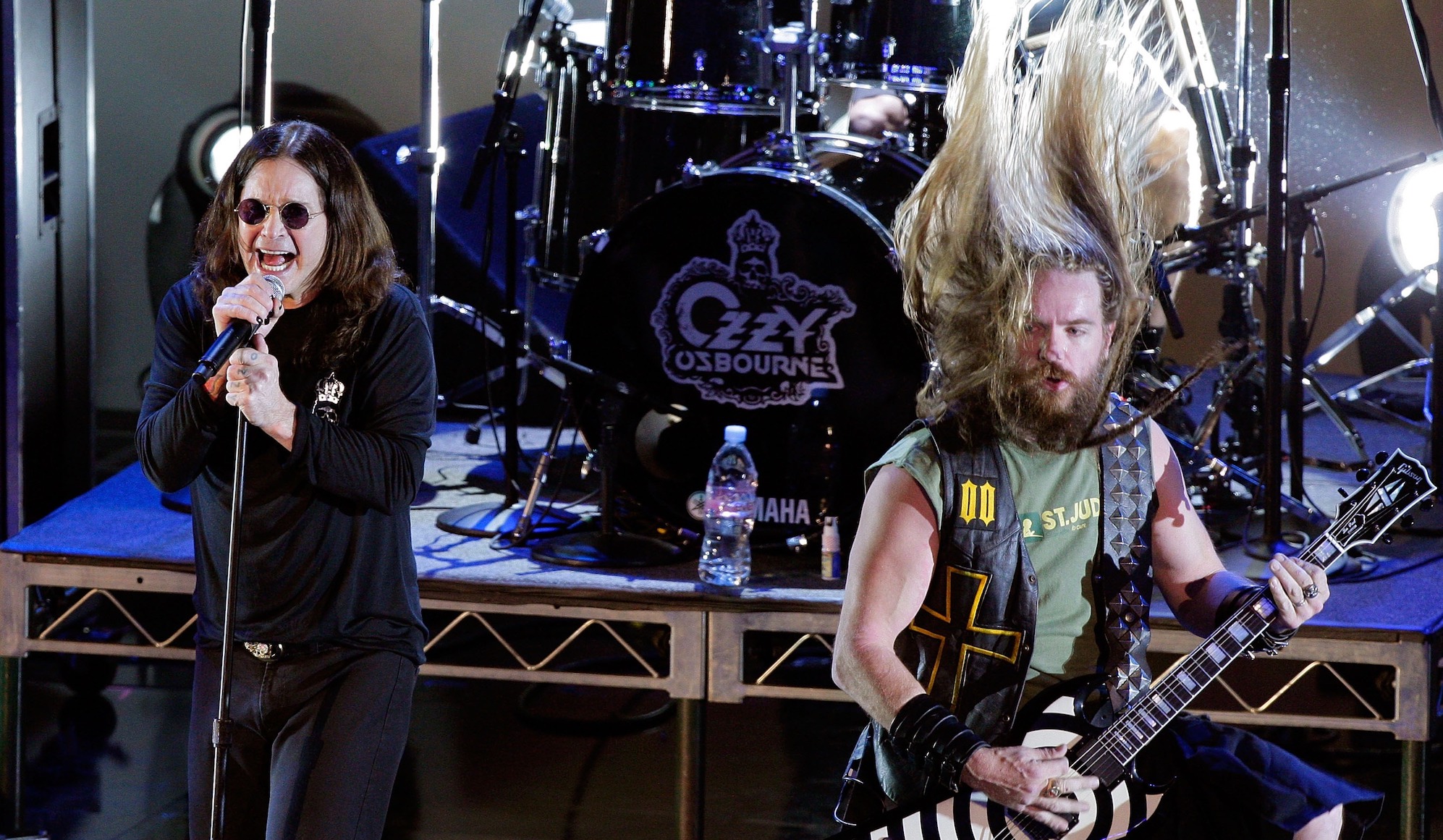
"You shouldn’t make yourself over-available, but you shouldn’t make yourself invisible either. I have to be careful because, in a lot of areas, not only are there a lot of people who like me but also a lot of people who hate me. I don’t want to be the next John Lennon.
"Trying to clean my act up was a major step in my life. I’m suddenly stone-cold sober in this zoo and the lions are trying to pick the lock. I was stoned for 21 years. Most rockers get stoned to break down the inhibitions, paranoia and shyness that stem from personal hang-ups we’ve carried around since we were kids. We all want to communicate with our fellow man, but we’re too frightened to try.
"Getting drunk allowed me to relax. But after a period of years, that stopped working for me. So I had a real dilemma. I was getting high and it was killing me. Yet, I was afraid of being sober. Things began going drastically wrong for me in my personal life. I had hit the bottom, and all that was left was death or insanity. Now with the grace of God, I’ve kept my sobriety, but I still take it one day at a time.
"On the next studio record I’ve decided to take a whack at writing a love song and things I actually feel. I may also write a song called, 'Son of a Bitch, Everything’s Real.' [laughs]
Someone once described you as a “nuclear bluesman.” The analogy fits – you often write simple, guitar-oriented songs about the woes of the modern man.
"Just the other day I was watching an old video of me singing Paranoid. I listened to the lyrics and thought, Hell, where were we when we wrote that? It was really strange because I had this smile on my face while I was singing this heavy, heavy song.
"I mean, Sabbath grew up in Birmingham, England, which was in an industrialized pit. That was a billion light years from San Francisco’s hippified flower power, where you’d hear some guy singing about wearing flowers in your hair. Meanwhile, my life was shit. I was frightened by fear. Fear has been my closest friend throughout my life. That’s why we drank. That’s why we’re all fucked up.
"But I have no real regrets, except that I wasn't up to keeping Randy Rhoads from getting on that plane. I'm no superman, no person from another planet – I'm just a lucky guy."
A long time ago in a galaxy far, far away Brad was the editor of Guitar World from 1990 to 2015. Since his departure he has authored Eruption: Conversations with Eddie Van Halen, Light & Shade: Conversations with Jimmy Page and Play it Loud: An Epic History of the Style, Sound & Revolution of the Electric Guitar, which was the inspiration for the Play It Loud exhibition at the Metropolitan Museum of Art in New York City in 2019.
“I suppose I felt that I deserved it for the amount of seriousness that I’d put into it. My head was huge!” “Clapton is God” graffiti made him a guitar legend when he was barely 20 – he says he was far from uncomfortable with the adulation at the time
“I was in a frenzy about it being trapped and burnt up. I knew I'd never be able to replace it”: After being pulled from the wreckage of a car crash, John Sykes ran back to his burning vehicle to save his beloved '76 Les Paul

